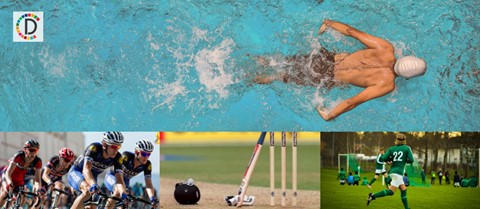High kicks: The Pakistani football star training girls in the Hindu Kush

(Adds detail in pars 8 and 9) By Zofeen T. Ebrahim
KARACHI, Pakistan, Oct 21 (Thomson Reuters Foundation) - R unning a football club for girls from poor families in a remote, mountainous area of Pakistan is hard enough at the best of times, let alone during a pandemic. But footballer Karishma Ali has not let the coronavirus stop her pursuing her dream of helping girls in her impoverished native Chitral region, high in the Hindu Kush mountains, to have a better future.
The 23-year-old, who has represented her country at international football tournaments, said the pandemic had only made her more determined to give girls the opportunities often reserved for boys in Pakistan. "Unlike boys, who could go out and play, girls remained cooped up, specially since even schools were closed," Ali told the Thomson Reuters Foundation by phone from Islamabad, where she has just completed a degree in business and management.
"Many had to help with household chores, which certainly was not much fun." Ali started her high-altitude sports club two years ago with 60 girls aged between eight and 16, and now has nearly 150 members who ski, and play volleyball and cricket as well as football.
She hopes it can help them overcome the twin challenges of poverty and sex discrimination in a country where boys' education is prioritised, by helping them get sports scholarships in professional colleges. Ali's own passion for football began when she watched the 2006 FIFA World Cup with her father, aged just nine.
"I just knew this is the game for me," she said. But it has not been easy - when the community discovered Ali's own football career, some were deeply hostile, and she received messages threatening to kill her if she continued.
"It was as seen inappropriate culturally because I would wear shorts, thereby baring my skin," she said. The situation eased last year when she was selected for Forbes magazine's 30 Under 30 Asia list of rising stars, alongside tennis champion Naomi Osaka and K-Pop band Blackpink, and the community began to recognise her achievements.
Next month, 30 of the girls will have a week of training from professional coaches in Islamabad - something Ali said would be a "giant educational step" as most have never left their communities. She has also raised funds for a van to take them to the field where they train - a two-hour walk from where they live - to escape disapproval from the community.
Her own family supported her dream of becoming a footballer, she said, calling her father a "feminist" who "believed in me when even I did not believe in me". Society as a whole is less supportive, said Ali, who wants to see more state backing for sport in a country whose prime minister, Imran Khan, is a former cricket star.
She dreams of one day playing for a national team, but that will have to wait - Pakistan does not currently have a women's football team. "I struggle every day myself," said Ali. "I work very hard at my end, but am not sure if the country's sports management is putting in the same effort."
If she has learned one lesson from her sporting career, however, it is this: "Fight no matter what, get up after a fall and be a leader," she said.
(This story has not been edited by Devdiscourse staff and is auto-generated from a syndicated feed.)
- READ MORE ON:
- Naomi Osaka
- Ali
- Imran Khan
- Hindu










